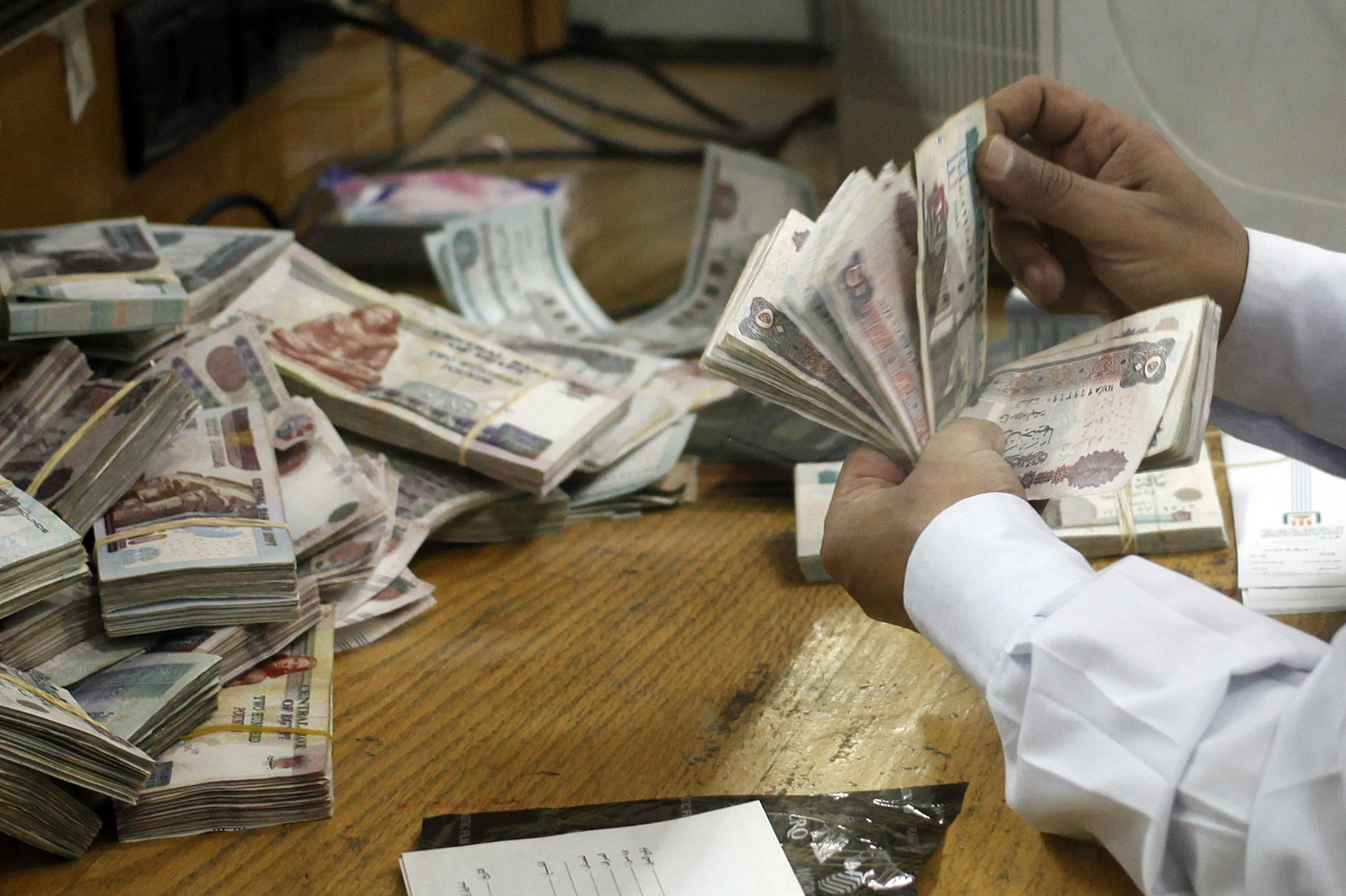Latest NEWS
- Aswat Masriya, the last word
- Roundup of Egypt's press headlines on March 15, 2017
- Roundup of Egypt's press headlines on March 14, 2017
- Former Egyptian President Hosni Mubarak to be released: lawyer
- Roundup of Egypt's press headlines on March 13, 2017
- Egypt's capital set to grow by half a million in 2017
- Egypt's wheat reserves to double with start of harvest -supply min
- Roundup of Egypt's press headlines on March 12, 2017
World Bank projects world poverty to fall below 10 pct, impact on Egypt unlikely

An employee counts money at a bank in Cairo September 4, 2014. REUTERS/Asmaa Waguih
By Maye Kabil
CAIRO, Oct 5 (Aswat Masriya) - The number of people living on less than $1.9 daily is likely to "fall to under 10 percent of the global population in 2015," marking a first in history although hurdles remain, the World Bank said on Sunday.
The World Bank said that by the end of the year, global poverty is likely to have fallen from 902 million people in 2012 to 702 million, dropping from 12.8 percent of the world’s population to 9.6 percent.
However, Egypt, the Arab world’s most populous country with a population of 89.6 million, is unlikely to be affected by the reduced global poverty rates, said Heba al-Laithy, a professor of statistics at Cairo University who specializes in poverty studies.
Laithy said the World Bank's poverty line is useful for comparisons but every country sets its own line.
Using current exchange rates, the number of people who lived on less than $500 annually or $1.36 daily represented a little over a quarter of the country’s population, according to a study on income and spending in the fiscal year 2012/2013.
Meanwhile extreme poverty affected 4.4 percent of Egypt’s population or 3.9 million Egyptians. The extreme poverty line in Egypt is set at around 7 Egyptian pounds a day or $0.9, according to Egypt’s statistics agency. People living in extreme poverty are unable to meet basic survival needs.
Poverty reduction in any country is linked to indicators that can be used to predict the direction that the country is taking, Laithy said. The indicators include prices and inflation, economic growth, the subsequent income increase and how the income is distributed.
If it is not distributed "fairly", most people will not benefit, she said.
"In Egypt’s case, growth rates are improving but are still insufficient," Laithy said, adding that there are multiple factors contributing to unequal distribution of income.
She added that although the state is adopting social programmes to help those in need, it is also adopting policies that affect them negatively such as raising the prices of fuel and electricity and cutting taxes for top earners.
President Abdel Fattah al-Sisi's administration reduced petroleum subsidies and introduced new taxes in July 2014, hiking fuel prices by up to 78 percent.
His administration has focused on improving the economy via mega projects such as the "New Suez Canal."
Years of political turmoil have taken a toll on Egypt’s economy, halving the state’s foreign reserves and driving away tourists.
The World Bank's report states, "poverty is declining in all regions but it is becoming deeper and more entrenched in countries that are either conflict ridden or overly dependent on commodity exports."
The report states that poverty remains concentrated in Sub-Saharan Africa and southern Asia but "current poverty data is not available for the Middle East and North Africa because of conflict and fragility in key countries in the region."
World Bank Group President Jim Yong Kim said that with slowed rates of global economic growth and many of the world's poor living in "fragile and conflict-affected states", ending extreme poverty remains "a highly ambitious target."










